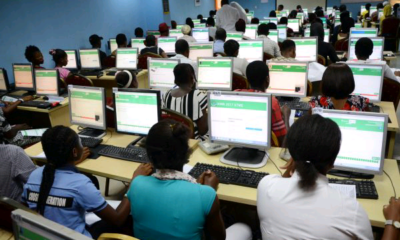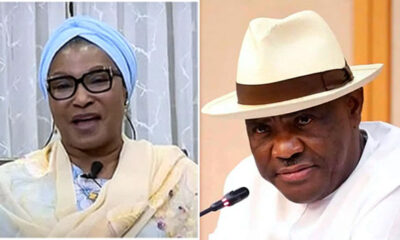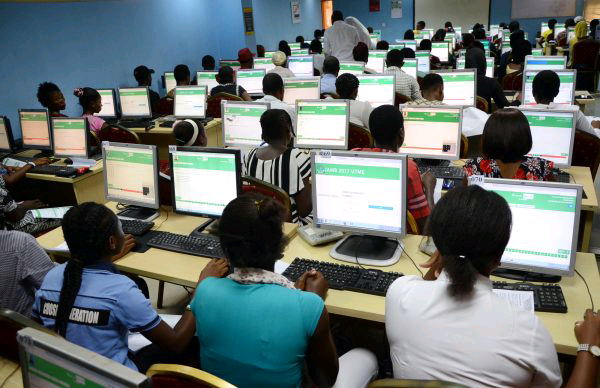A further drop in crude oil prices and the reintroduction of the “naira-for-crude” initiative for domestic refiners could see the price of Premium Motor Spirit (petrol) fall to approximately N800 per litre in the near future, according to oil marketers and industry experts on Wednesday.
This development follows another reduction in the ex-depot price of petrol by Dangote Petroleum Refinery to N835 per litre—the second reduction in under a week.
Industry stakeholders noted that achieving a price point of N800 per litre would require crude oil to fall further to around $50 per barrel and a reduced reliance on foreign exchange for product procurement. On Wednesday, Brent crude, the global benchmark, was priced at roughly $65 per barrel.
Also on Wednesday, Dangote Refinery again lowered its refined product prices, setting the ex-depot petrol rate at N835 per litre.
This new price is N30 less than the previous N865 per litre rate set six days ago—a 3.5 percent cut—and N45 less than the N880 per litre rate from the prior Wednesday.
This move marks the refinery’s third price reduction in a six-week span. A pro forma invoice reviewed by our correspondent, along with data from petroleumprice.ng, verified the update.
In a statement signed by Anthony Chiejina, Group Chief Branding and Communications Officer, the refinery confirmed the price cut as part of its continued effort to offer high-quality petrol at accessible prices to Nigerian consumers.
The statement emphasized that the updated price includes charges from the Nigerian Midstream and Downstream Petroleum Regulatory Authority (NMDPRA).
The revised pricing document outlines that PMS at the gantry will now be sold for N835 per litre, inclusive of NMDPRA fees, while coastal sales remain suspended. The diesel gantry price stands at $608, with a $70 surcharge, payable in naira at N1,650/$ or in USD.
Coastal sales of diesel and jet fuel remain paused. Jet fuel is priced at $664.75 with additional surcharges of $42 (gantry) and $22 (coastal). Prices for cooking gas at both gantry and coastal levels are also on hold.
According to the statement, partner distributors will retail the products between N890 and N920 per litre. These partners include MRS, AP (Ardova), Heyden, Optima Energy, Hyde, and Tecno Oil.
The statement noted, “Dangote Petroleum Refinery is pleased to announce a reduction in the gantry price of Premium Motor Spirit, commonly known as petrol, from N865 to N835, effective from Wednesday, 16th April 2025. This marks the second price reduction within a week.”
“Key partners, including MRS, AP (Ardova), Heyden, Optima Energy, Hyde and Tecno Oil, will offer petrol at N890 per litre, down from N920 in Lagos. In the South-West, the price will be N900 per litre, reduced from N930.
“In the North-West and North-Central, the price will be N910 per litre, lowered from N940. In the South-East, South-South, and North-East, the price will be N920 per litre, down from N950.”
Chiejina also stated that the price cut is expected to create a positive ripple across the economy, easing consumer costs and stimulating broader growth.
He said, “Dangote Petroleum Refinery has consistently worked to reduce the prices of petrol and other refined petroleum products, ensuring the continued benefit of Nigerian consumers. For example, in February, the refinery reduced prices twice by N125. In addition, products such as diesel and Liquefied Petroleum Gas have also experienced significant price reductions due to the refinery’s sustained efforts.
“We anticipate that this latest reduction in PMS prices will generate a positive ripple effect throughout various sectors of the economy, providing much-needed relief to consumers and contributing to broader economic growth, particularly during the Easter season.
“Dangote Petroleum Refinery remains steadfast in its commitment to ensuring a steady supply of premium-quality petroleum products, with sufficient reserves to meet domestic demand, along with a surplus for export. This strategy is designed to support the stability of the domestic market while also contributing to the growth of Nigeria’s foreign exchange reserves.
“Furthermore, Dangote Petroleum Refinery calls on industry stakeholders, including marketers and distributors, to continue sourcing their products from the refinery, ensuring that the benefits of these price reductions are fully realised across the country.”
It was earlier reported that there’s a possible price cut following a reduction in the landing cost of imported petrol, which dropped to N853 per litre on Tuesday.
This was as marketers obtained regulatory clearance to import 117,000 metric tonnes (approximately 156.897 million litres) of petrol between April 8 and April 16, 2025, to boost supply across Nigeria.
These figures were confirmed through separate documents reviewed by our correspondent from the Nigerian Ports Authority and the Major Energies Marketers Association of Nigeria.
Dealers disclosed that the N853 per litre spot import parity price—factoring in shipping, import duties, and exchange rates—was N3 lower than N856.75 per litre on the previous Monday and N852.02 on Tuesday.
Documents showed that the spot price at the NPSC-NOJ terminal had dropped to N853.12 per litre, while the 30-day average cost declined to N844.84 per litre.
During the stated period, six vessels delivered 117,000 metric tonnes of petrol through Tin Can Port in Lagos and Calabar Port in Cross River State.
The ongoing decline in prices coincides with the resumption of the “Naira-for-Crude” agreement for local refiners, following an earlier pause.
The Ministry of Finance confirmed this in a statement on its official X page titled: “Update on the Crude and Refined Product Sales in Naira Initiative.”
The update followed a meeting between Finance Minister Wale Edun and representatives from Dangote Refinery, one of the agreement’s main beneficiaries, to assess progress and resolve implementation issues.
The committee emphasized that the policy is a long-term measure aimed at reducing Nigeria’s reliance on foreign currency for petrol purchases.
It also highlighted that the initiative is a core policy goal to promote sustainable refining within Nigeria and enhance national energy security.
Despite the cost reductions, oil marketers have yet to reflect the changes at the pump, as retail prices remain mostly unchanged in many areas.
Commenting on this, Chinedu Ukadike, National Publicity Secretary of the Independent Petroleum Marketers Association of Nigeria, linked the new pricing to the reactivated “naira-for-crude” program.
In a phone interview, he stated, “Yes, the reduced price is a direct implication of the naira-for-crude deal. Global crude price is also a key factor. And I can tell you that if this continues, and prices continue to dwindle in the international market, the impact shall be felt domestically in the prices of refined products.
“When crude price reaches $50 per barrel, then it is possible to reach between N650 to N700 per litre petrol price.”
However, he pointed out that the adjustment brings losses for marketers.
“It is affecting marketers, but based on the naira-for-crude, the effect must be reflected in the pump price. The issue of exchange has been discounted because the government has started supplying Dangote crude. It won’t be fair for him to remain at the former price.
“Because of the new decision of the New Group Chief Executive Officer of the Nigerian National Petroleum Company, there must be a reflective impact on the price of petroleum products to show that the government has implemented as discussed,” Ukadike stated.
Energy analyst Olatide Jeremiah noted that without the earlier suspension of the local refining deal, pump prices could already be around N700 per litre.
He remarked, “The crude oil decline and renewal of naira-for-crude policy is a double-edged advantage for Nigerians, as pump price may hit N700/litre soon.
“Today’s decline from N865/litre to N830/litre just triggered a price war between Dangote and private Depot owners. As I speak, oil importers are jittering as this price decline will force them to compete, thus pushing them into losses since their landing cost is about 860/litre, and most of them still have stocks in their tank farms.
“For both blocs, it’s all about who has the largest share and dominates the petroleum market, but for Nigerians, they should expect and enjoy a continuous reduction of fuel pump prices.
“If not for the suspension of naira-crude policy that gave private depot owners the autonomy to jack up prices, petrol pump price would have dropped to around N700/litre.”
Meanwhile, Dr. Billy Gillis-Harry, President of the Petroleum Products Retail Outlets Owners Association of Nigeria, offered a different take, warning that sudden price changes were causing serious instability in the industry.

 BIG STORY4 days ago
BIG STORY4 days ago
 BIG STORY4 days ago
BIG STORY4 days ago
 BIG STORY8 hours ago
BIG STORY8 hours ago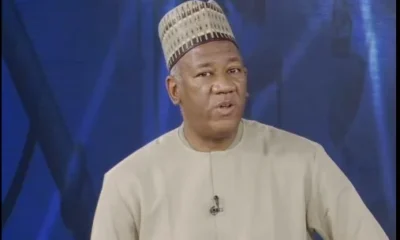
 BIG STORY5 days ago
BIG STORY5 days ago
 BIG STORY3 days ago
BIG STORY3 days ago
 BIG STORY1 day ago
BIG STORY1 day ago
 BIG STORY4 days ago
BIG STORY4 days ago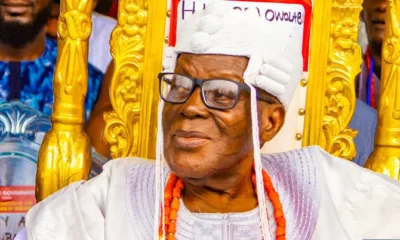
 BIG STORY1 day ago
BIG STORY1 day ago









